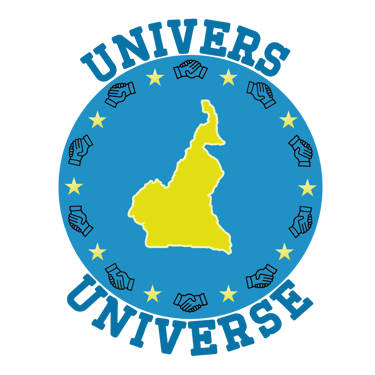Chapter 9 – On the Fight Against Corruption


Corruption can be defined as an act by which a person, entrusted with a public or private function, solicits, accepts a gift, an offer, or a promise in order to perform an act, directly or indirectly, related to their duties. Everyone knows it: in Cameroon, corruption is a real scourge that must be addressed.
Problem
Corruption is one of the major obstacles to Cameroon's economic and social development. It is the root cause of poor governance, which in turn can foster criminal networks and encourage many other offenses. Corruption stifles economic growth, undermines the rule of law, and leads to a waste of talent and resources.
In Cameroon, where corruption is widespread, many people hesitate to start businesses due to the high final cost of investment, considering the numerous bribes required to create and sustain a commercial or industrial venture. Cameroon is rich in natural resources, yet its people do not benefit from this wealth because these resources are sold at low prices to foreign powers, thanks to kickbacks. Corruption even weakens security structures such as police services.
It threatens democracy and human rights, weakening public institutions that uphold justice and equity. Vote-buying during elections allows an incompetent elite to rise to public office, hindering national development. When public service positions are awarded not based on merit but through corruption, it shuts down future prospects for the nation. Justice becomes compromised when criminals can buy their freedom through the corruption of judicial actors.
Though several anti-corruption institutions have been created by the current government (such as the National Anti-Corruption Commission, the National Financial Investigation Agency, the Special Criminal Court), they prove ineffective because they are created and controlled by the very individuals who benefit most from corruption. Moreover, they rely primarily on repressive measures, whereas in corruption matters, the most effective approaches are preventive.
Solutions
While it is difficult to completely eradicate corruption in a country like Cameroon, it can be significantly reduced through preventive measures. Solutions can be implemented to ensure transparency in public service recruitment; steps can be taken to reduce direct contact between citizens and public officials; police checkpoints on roadways can be eliminated; and all individuals must be required to justify the origins of their material wealth.
Proposed Measures


Measure 1 – Transparency in Public Service Recruitment
Many Cameroonian public servants owe their wealth entirely to corruption. The public service has become a sort of “counter” where public services are “sold,” and citizens are made to pay unofficial fees beyond legally mandated taxes.
Corrupt public servants often admit that they had to pay to get into public service or to be appointed to a position. As a result, they feel entitled to recover their "investment" by exploiting users.
By cleaning up recruitment competitions into public service, as proposed by the UNIVERS Party, people who haven’t had to financially "buy" their position will be hired. These individuals will be less inclined to seek returns through corrupt practices. They’ll be proud of earning their position based on merit, which will strengthen their sense of honor and reduce their focus on material wealth. An honestly recruited civil servant is less exposed to corruption.
Measure 2 – Minimizing Contact Between Citizens and Civil Servants
In Cameroon, people say that when you submit a file to an administrative service, you must “follow up” on it. This means paying bribes at every step of the process to ensure the file is processed.
The UNIVERS Party proposes prohibiting all direct contact between the citizen and the civil servants handling their files. A reception office should be established in every public administration, staffed by trained officials. These are the only individuals permitted to interact directly with users. They are responsible for explaining the required documents, procedures, and expected processing time.
This one-time interaction must be courteous and informative. The user must leave contact information to receive updates about their file through traceable methods like phone calls, SMS, or the internet.
All communications should be digitized. Public administrations must maintain updated websites with all relevant information. Payments should not be made in cash beyond a certain amount and must be processed electronically.
Failure by a civil servant to update a user on the status of their file, or to respect set processing deadlines, will be treated as a disciplinary—and even criminal—offense. Only the reception staff should be allowed to interact with the public; administrative halls must remain off-limits to unauthorized individuals.
Measure 3 – Elimination of Police Checkpoints
Traveling by road in Cameroon is often disrupted by numerous police checkpoints. On a 100 km journey, one may encounter four or five stops. Rarely are traffic violations formally recorded at these stops, yet officers return home with pockets full of money—bribes extorted from motorists lacking valid documents.
These police checkpoints function as open-air “corruption toll booths,” well-known to everyone. They foster a culture where citizens see bribery as a normal aspect of state functioning.
The UNIVERS Party proposes the elimination of these fixed checkpoints. Instead, entry points to cities can have police stations to monitor ingress without harassing travelers. Road checks should be rare and must be justified—for instance, when searching for a particular person or object.
Each road police unit must be equipped with vehicles or motorcycles for patrol—not to harass motorists but to prevent accidents and document actual infractions.
In a modern Cameroon, more effective control methods can be implemented. A national digital database of all registered vehicles should be created. All information about vehicle documents—insurance, registration, etc.—should be fed into this system.
For example, when a vehicle owner pays their insurance or renews their road tax, the update should immediately reflect in the central system. Any failure to comply will be flagged, and the offender can be contacted electronically and fined. If the offense persists, their case is referred to the judicial police. There is no need for roadside stops when authorities know the owner's address and workplace. They can simply go there to enforce the law.
Measure 4 – The Requirement for All Individuals to Justify Their Material Wealth
In Cameroon, a familiar phenomenon unfolds: a civil servant suddenly acquires immense material wealth—luxury cars, lavish homes, large bank accounts. They live a lifestyle far beyond what their official salary could support. Yet, no one questions the origin of such sudden and obviously suspicious wealth. On the contrary, the newly rich are praised and celebrated, especially when they flamboyantly distribute cash in public spaces. Their entourage even presents them as role models—"smart" individuals who know how to make the most of their public office.
However, audits into their administration often find no traceable misappropriation of public funds. The truth? These officials thrive on corruption, which rarely leaves behind concrete evidence.
Under the current political system in Cameroon, such individuals sleep soundly. They are neither prosecuted, nor condemned, nor even questioned. They hide behind the principle of presumption of innocence, which conveniently protects them unless undeniable proof of corruption is presented—a nearly impossible feat.
With the UNIVERS Party, the rules will change.
In all cases of sudden and suspicious enrichment, there will be a presumption of fraud. It will be up to the individual in question to prove that their wealth comes from legal, legitimate activities. Until then, all such assets will be seized by the state. These assets will only be returned once the individual has provided satisfactory proof of lawful acquisition.
Furthermore, anyone appointed to public positions vulnerable to corruption will be required to declare their assets beforehand, to avoid any suspicions of illicit enrichment during their tenure.
This presumption of fraudulent enrichment won’t apply to public officials alone. Every citizen must be able to justify the origin of sudden and suspect wealth. This measure aims to dissuade anyone who believes they can get rich through criminal means, and to promote integrity and transparency at all levels of society.
